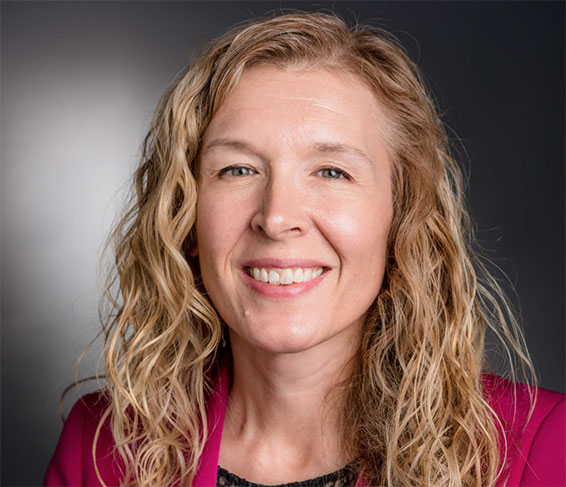Plant-based diets have many known health benefits, but can they reduce the risk of breast cancer? In fact, some evidence suggests that people who eat rich in non-starchy vegetables may be at lower risk of some kinds of breast cancer.
However, Dana-Farber physician and researcher Jennifer Ligibel, MD, cautions that the evidence that consuming a plant-based diet lowers risk of breast cancer is not conclusive, and other elements of lifestyle, such as regular exercise and keeping weight in a healthy range, appear to be more closely linked to breast cancer risk.
“Much of the evidence linking lifestyle factors to the risk of developing breast cancer comes from ‘observational’ studies, where people are asked about what kinds of foods they eat, what kind of exercise they do, how much they weigh, and more,” Ligibel explains. “People are then observed over time to see who gets breast cancer and who does not. Patterns emerge, suggesting that some factors are linked to higher or lower risks of cancer. What is very tricky about that kind of evidence is that behaviors track together.”
The people in these studies who eat a plant-based diet typically exercise more, weigh less, and are less likely to smoke, making it difficult to definitively say which of these factors reduce breast cancer risk.
“Although a link between diet and breast cancer in some studies, links between exercise and weight and breast cancer are much more consistent,” Ligibel says.
What do we know about the lifestyle and diet changes and breast cancer?
Ligibel advises patients that see her at the Breast Oncology Program at Dana-Farber Brigham Cancer Center to seek out the World Cancer Research Fund (WCRF) resources.
Generally, for cancer prevention, WCRF recommends:
- eating a diet rich in wholegrains, vegetables, fruits, and beans
- limiting consumption of red and processed meats
- avoiding drinking alcoholic beverages
- eating a healthy diet rather than relying on dietary supplements to protect against cancer
- staying physically active

“There have been so many studies that have evaluated links between lifestyle factors and breast cancer risk that it can be hard to see the bigger picture,” Ligibel says. “WCRF looks at all the evidence to find consistent patterns. Ultimately, making healthy lifestyle choices is linked to a lower risk of breast cancer, but the current evidence does not provide specific guidance for which foods you should eat and which you should avoid.”
In terms of breast cancer specifically, the WCRF analyzed 119 studies from around the world, comprising more than 12 million women and over 260,000 cases of breast cancer.
There is strong evidence that:
- undertaking vigorous physical activity decreases the risk of premenopausal and postmenopausal breast cancer
- breastfeeding DECREASES the risk of breast cancer (unspecified) in the mother
- consuming alcoholic drinks INCREASES the risk of premenopausal and postmenopausal breast cancer
There is some evidence that:
- consuming non-starchy vegetables might decrease the risk of estrogen-receptor-negative (ER–) breast cancer (unspecified)
- consuming foods containing carotenoids might decrease the risk of breast cancer (unspecified)
- consuming dairy products might decrease the risk of premenopausal breast cancer
- diets high in calcium might decrease the risk of premenopausal and postmenopausal breast cancer
For practical ways to apply this knowledge, the Leonard P. Zakim Center for Integrative Therapies and Healthy Living at Dana-Farber offers online cooking courses, recipes, and exercise classes.
Leading a healthy lifestyle in cancer survivorship
Although the evidence is not conclusive for plant-based diets and cancer prevention, Ligibel says that plant-based diets can lower the risk of other health complications, such as cardiovascular disease and diabetes. This can be important for those who have been diagnosed with cancer.
“For people who have had cancer, it can be even more important to make sure that they are exercising and eating healthy because their risk of developing other health problems is often higher than for someone who hasn’t gone through that experience,” Ligibel explains.
Exercise is also beneficial for people undergoing cancer treatment. Aside from improving mood, it can help patients avoid certain side effects from their treatment. Patients at Dana-Farber can ask their physician about the Zakim Center and its offerings.
About the Medical Reviewer

Dr. Jennifer Ligibel is an Associate Professor at Harvard Medical School and a Senior Physician in the Breast Oncology Center at the Dana-Farber Cancer Institute. Dr. Ligibel’s research focuses on the impact of energy balance factors, such as physical activity and body weight, upon cancer risk and outcomes. She has conducted more than a dozen randomized trials evaluating the impact of exercise and weight loss interventions on endpoints such as cardiorespiratory fitness, biomarkers associated with cancer risk and outcomes, body composition, and quality of life in cancer patients and survivors. This work has culminated in the design and implementation of the Breast Cancer Weight Loss (BWEL) Trial, the only fully powered Phase III clinical trial designed to test the impact of a weight loss intervention on invasive disease-free survival in women with early-stage breast cancer and obesity (NCT02750826).
In addition to primary research work, Dr. Ligibel also is the Director of the Leonard P. Zakim Center for Integrative Therapies and Healthy Living and has built a comprehensive clinical Healthy Living Program for patients at Dana-Farber and beyond that offers an array of exercise classes, nutrition seminars, cooking demonstrations, programs focused on healthy cooking for families, weight management programs, and holistic longitudinal programs to foster wellness during and after cancer treatment.
Finally, Dr. Ligibel is the inaugural Director of Center for Faculty Well-Being at Dana-Farber. In this role, she studies the prevalence and predictors of burnout in academic physicians, as well as develops solutions to mitigate and prevent burnout in Dana-Farber Faculty. In recognition of her work in mentoring and supporting faculty, she was awarded the Hologic, Inc Endowed Women Who Conquer Cancer Mentorship Award in 2021.
